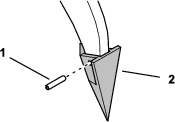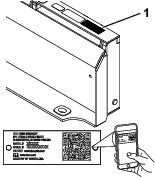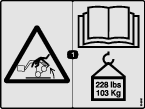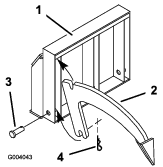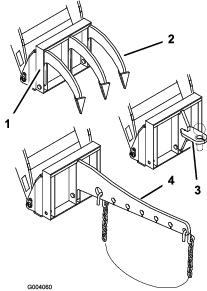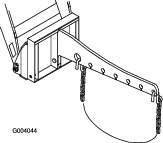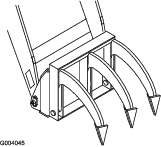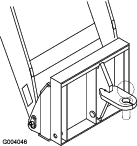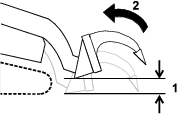Read this information carefully to learn how to operate and
maintain your product properly and to avoid injury and product damage.
You are responsible for operating the product properly and safely.
You may contact Toro directly at www.Toro.com for
product safety and operation training materials, accessory information,
help finding a dealer, or to register your product.
Whenever you need service, genuine Toro parts, or additional
information, contact an Authorized Service Dealer or Toro Customer
Service and have the model and serial numbers of your product ready. Figure 1 identifies
the location of the model and serial numbers on the product. Write
the numbers in the space provided.
Important: With your mobile device, you can scan the QR code on the serial
number decal (if equipped) to access warranty, parts, and other product
information.
This manual identifies potential hazards and has safety messages
identified by the safety-alert symbol (Figure 2), which signals a hazard that
may cause serious injury or death if you do not follow the recommended
precautions.
This manual uses 2 words to highlight information. Important calls attention to special mechanical information
and Note emphasizes general information worthy
of special attention.
Warning
CALIFORNIA
Proposition 65 Warning
Use of this product may cause exposure to chemicals known to the State of California to cause cancer, birth defects, or other reproductive harm.
